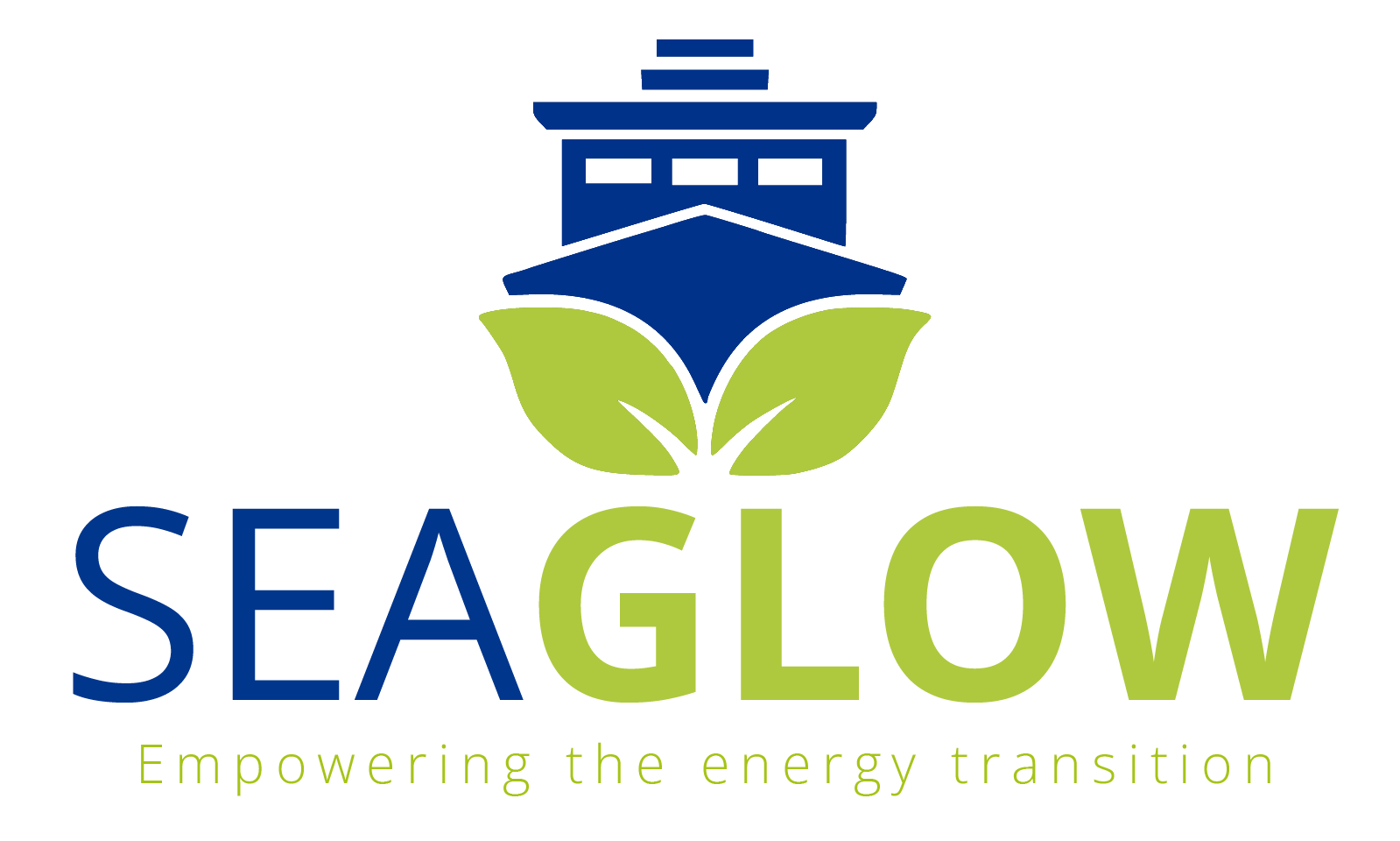Projekti
Trenutni projekti
Izgradnja participativnog jamstvenog sustava (PGS) za malo ribarstvo
LIFE razvija Strateški plan za uspostavu Sustava participativnih jamstava (PGS) za malo ribarstvo s niskim utjecajem. Ovaj sustav pružit će pristupačnu alternativu skupim certifikacijama trećih strana, osiguravajući transparentnost i podržavajući kratke lance vrijednosti.
Nadovezujući se na PGS model organske poljoprivrede, ova će inicijativa surađivati s malim ribarima i dionicima kako bi razvila standarde certificiranja, osiguravajući da su održivi plodovi mora prepoznatljivi i prilagođeni potrošačima. Cilj joj je poboljšati pristup tržištu, promicati poštenu trgovinu i poticati sustav plodova mora koji podržava i ljude i planet.

DonatorPatagonija
Ukupni proračun28.000 eura
Geografski opseg: Europski
Vremenska Crta: 2025
PartneriŽIVOT
"Razlog za razvoj Sustav participativnog jamstva (PGS) za male europske ribare utemeljen je na potrebi rješavanja višestrukih izazova unutar ribarskog sektora, uz promicanje održivih, lokalno vođenih rješenja.”
Jeremy Percy, voditelj projekta PGS-a
Projekt Baltičkog i Sjevernog mora (BANS)
Ovaj projekt ima za cilj podršku i koordinaciju organizacija malog ribolova (SMF) u Baltičkom i Sjevernom moru. Glavni ciljevi uključuju poboljšanje pristupa ribolovnim područjima, smanjenje štetnih ribolovnih praksi i povećanje održivosti putem marketinških inicijativa. Projekt osnažuje male ribare predstavljajući ih u savjetodavnim i forumima za donošenje odluka, omogućujući da se njihovi glasovi čuju i utječući na pozitivne promjene za zdravija mora. Projekt nastoji pokazati vrijednost odgovornih ribolovnih praksi kao alternative prekapacitiranosti i destruktivnom ribolovu. Jačanjem provedbe Zajedničke ribarstvene politike i utjecajem na tekuće rasprave o politici, projekt naglašava nagrađivanje ribolova s malim utjecajem zbog njegovog pozitivnog iskorištavanja resursa i smanjenja utjecaja na okoliš.
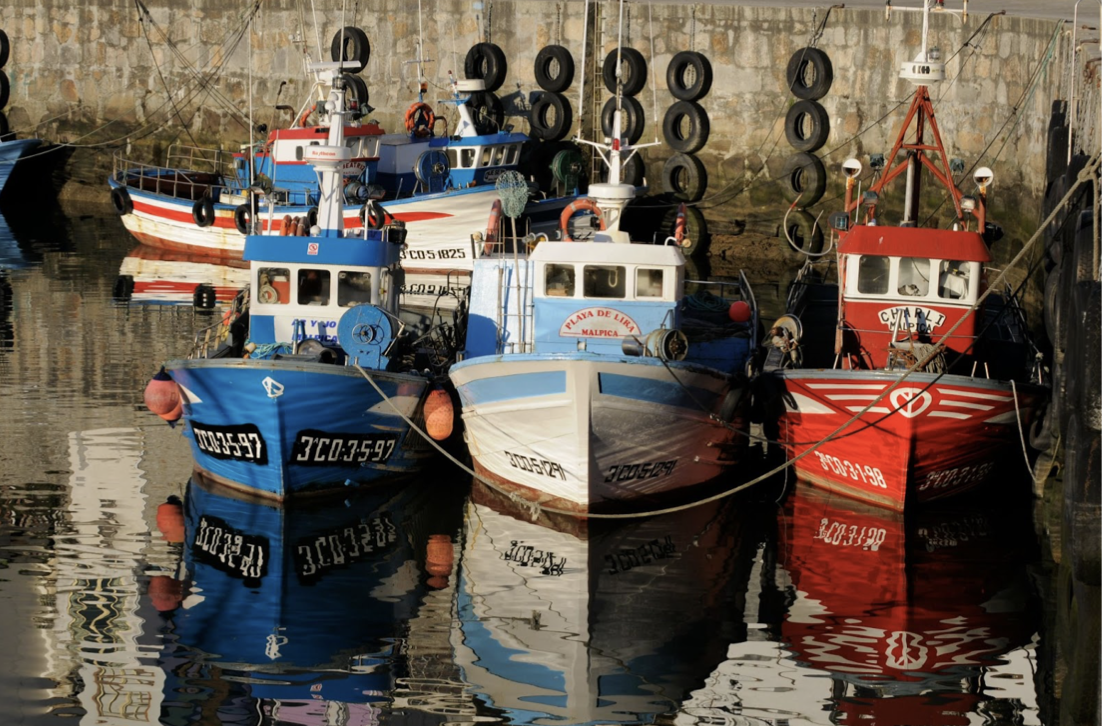
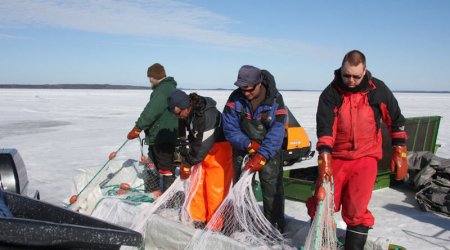
DonatorVelux Fonden
Ukupni proračun750.000 eura
Geografski opsegEuropska razina s fokusom na Baltičko i Sjeverno more
Vremenska Crta: 2022. – 2026.
PartneriŽIVOT
„Potpora koju smo primili od Velux Fondena bila je ključna za jačanje našeg rada u regijama Baltičkog i Sjevernog mora. Omogućila nam je da podržimo male ribare iz regije u Bruxellesu. Upravljanje ribarstvom odvija se daleko od obalnih zajednica, a ova potpora omogućila nam je koordinaciju naših članova, čiji se zajednički lokalni problemi moraju riješiti na regionalnoj, nacionalnoj i europskoj razini.“
Christian Tsangarides, koordinator programa LIFE Baltik i Sjeverno more
Promicanje komercijalnog ribolova glavoča u Baltičkom moru
Glavočić je invazivna vrsta u Baltičkom moru, no za takve vrste može se stvoriti tržište. Projekt Glavočić vodi konzorcij partnera s ciljem razvoja ribolova za glavočića u Baltičkom moru. Glavni partneri su znanstveno-istraživački instituti iz cijele regije, zajedno s lokalnim vladinim agencijama, prerađivačima ribe i ribarskim organizacijama poput FSKPO, organizacije članice LIFE-a. Odgovornosti LIFE-a uglavnom se odnose na procjenu postojećih tehnika ribolova kako bi se informiralo o razvoju nove inovativne opreme za komercijalni ribolov glavočića i razvoju preporuka najbolje prakse u dijalogu s transnacionalnim organizacijama poput Savjetodavnog vijeća Baltičkog mora ili BaltFisha.
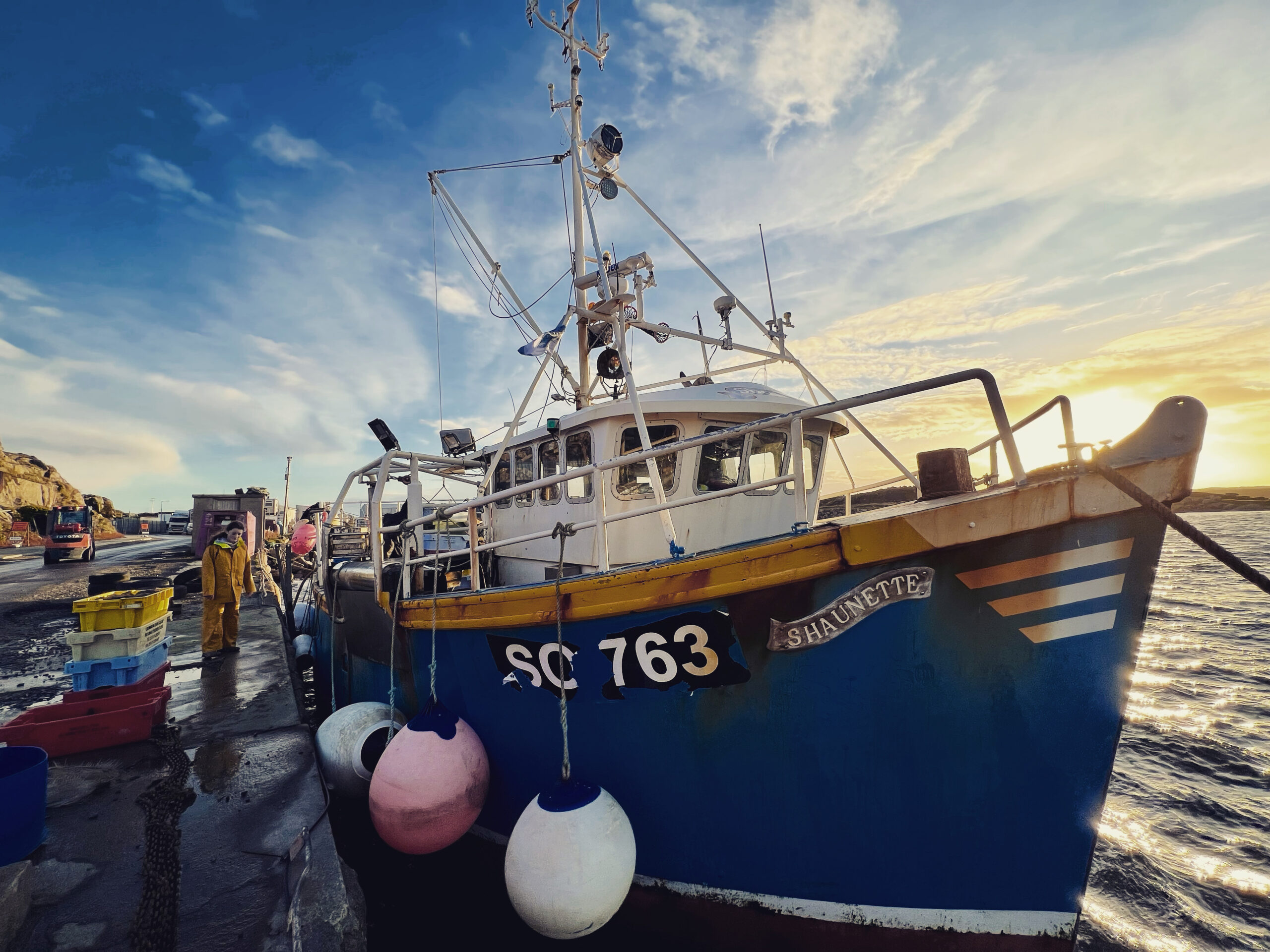

Donator: EU fondovi – Interreg regija Baltičkog mora
Ukupni proračun: 2.973.587€
Doprinos programu LIFE: 285.469€
Geografski opsegBaltičko i Sjeverno more
Vremenska Crta: 2024. – 2026.
Partneri15 partnera, uključujući Općinu Simrishanm (voditeljicu) i FSKPO, članicu programa LIFE
„Pozdravljamo projekt, a posebno mogućnost dobivanja veće dodane vrijednosti od ribe. Projekt će povećati znanje o metodama ribolova i selektivnosti, kao i detaljnija istraživanja utjecaja glavoča na ekosustav.“
Evalds Urtans, Latvijski ribarski savez
Projekt Seaglow
Ova inicijativa dio je projekta EU Horizon o dekarbonizaciji malih ribarskih flota Baltičkog i Sjevernog mora. Ovaj će projekt procijeniti postojeće propise koji utječu na dekarbonizaciju u sektoru te jasno i nedvosmisleno pokazati da će korištenje kombinacije ovih odgovarajućih tehnologija promijeniti pravila igre, omogućujući isplativo smanjenje potrošnje goriva, što će koristiti ribarskoj zajednici i okolišu te ubrzati prilike za pozitivne promjene. Projekt će testirati tri pilot projekta za alternativne pogonske sustave (u Švedskoj, Danskoj i Estoniji), predložiti rješenja za europsku ribarsku flotu te se uključiti u komunikacijski i zagovarački rad. LIFE će voditi komunikacijski radni paket i organizirati niz radionica i završnu konferenciju kako bi se saželi nalazi projekta.
DonatorProgram EU Horizon
Ukupno proračun: 4.883.898€
Doprinos do ŽIVOT: 293.093€
Geografski opsegBaltičko i Sjeverno more
Vremenska Crta: 2024-2028
Partneri16 partnera, uključujući NDEU (voditelj) i FSKPO, člana programa LIFE
„Zelenu tranziciju vidimo kao sastavni i nužan dio budućnosti ribarstva. A koje je bolje mjesto za početak nego s malim plovilima s niskim utjecajem na okoliš, koja već troše najmanje energije i stoga ih je najlakše prvi prijeći. Kada se tome dodaju ekološke i socioekonomske prednosti ribolova s niskim utjecajem na okoliš, kao što su minimalni usputni ulov, gotovo nikakvo ometanje morskog dna i dodana vrijednost za lokalne ribarske zajednice, to postaje jasan putokaz za budućnost. Stoga smo jako uzbuđeni što smo dio projekta Seaglow i što pomažemo u postavljanju održivijeg puta s kolektivnim iskustvom danskih malih ribara s niskim utjecajem na okoliš.“
David Lange, redatelj FSK-PO
Ponovno promišljanje ribarstva
Projekt nastoji pokrenuti dijalog s više dionika i uključiv proces koji su Low Impact Fishers Europe zajedno s Seas At Risk započeli 2023. godine kako bi podigli svijest i izgradili zajedničku viziju ribarstva budućnosti, uključujući potrebu za pravednim prijelazom na ribolov niskog utjecaja i pošteno ribarstvo. Projekt će također promovirati preporuke i pružiti praktične primjere alternativnih poslovnih modela koji doprinose toj viziji.
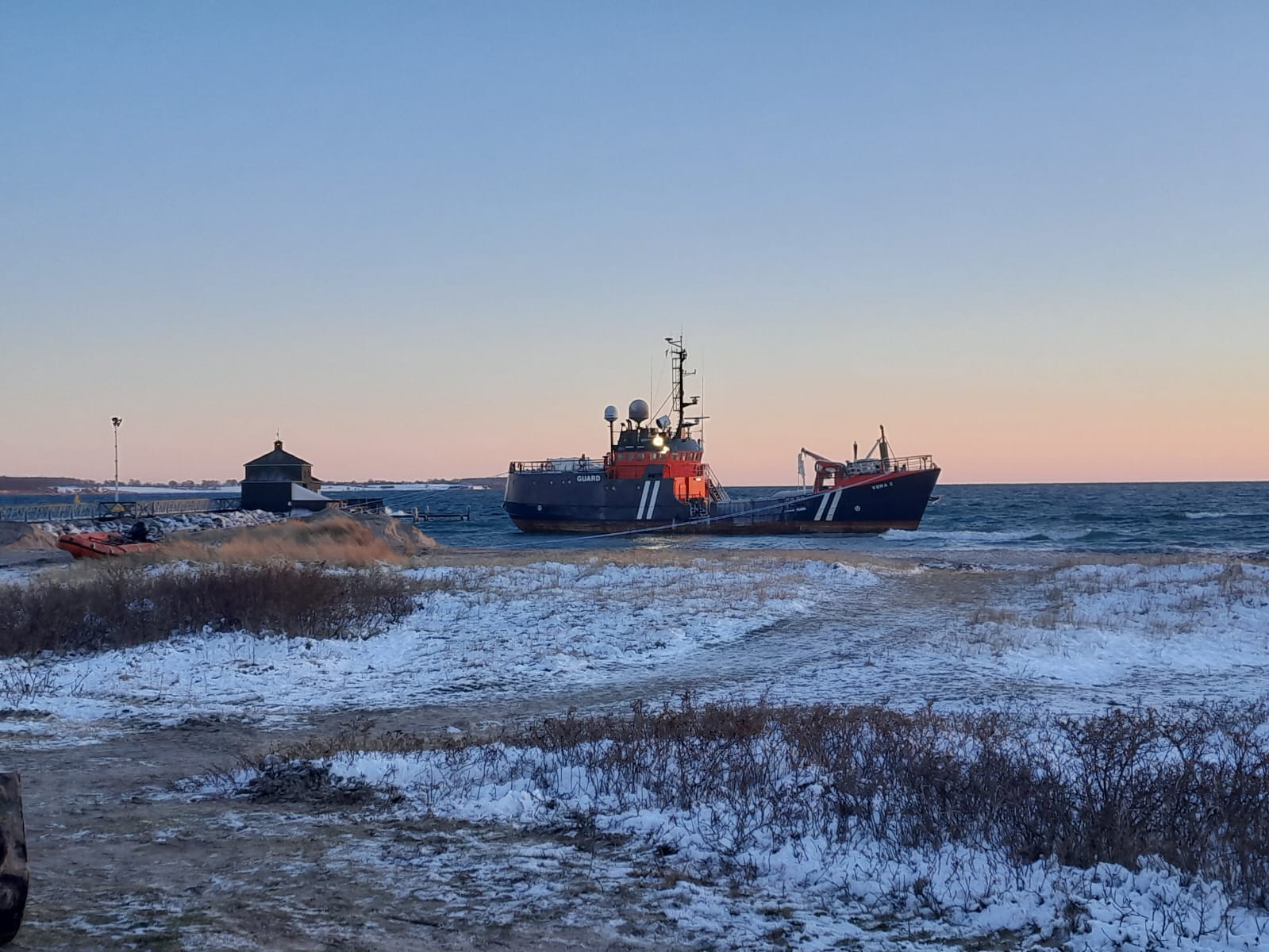
DonatorPatagonija
Doprinos do ŽIVOT : 13.631€
Geografski opsegEuropa
Vremenska Crta: 2024
PartneriMore u opasnosti
Marta Cavallé, izvršna tajnica programa LIFE
Riba X
Projekt Fish-X u okviru programa EU Horizon ima za cilj potaknuti digitalne inovacije u ribarskoj industriji, poticati održivo iskorištavanje zajedničkih prirodnih resursa; razviti pristupačne tehnologije za osnaživanje malog ribarstva i povećati njegov kredibilitet prema kupcima. Konkretnije, projekt Fish-X razvija prostor podataka o ribarstvu, aplikaciju za sljedivost i platformu za uvid – temeljene na pametnoj orkestriranoj arhitekturi i otvorenoj interoperabilnoj tehnologiji putem Gaia-X-a. LIFE će osigurati da se mišljenja i stavovi SSF-a uključe u ovaj proces, a posebno u industrijski plan za digitalizaciju.
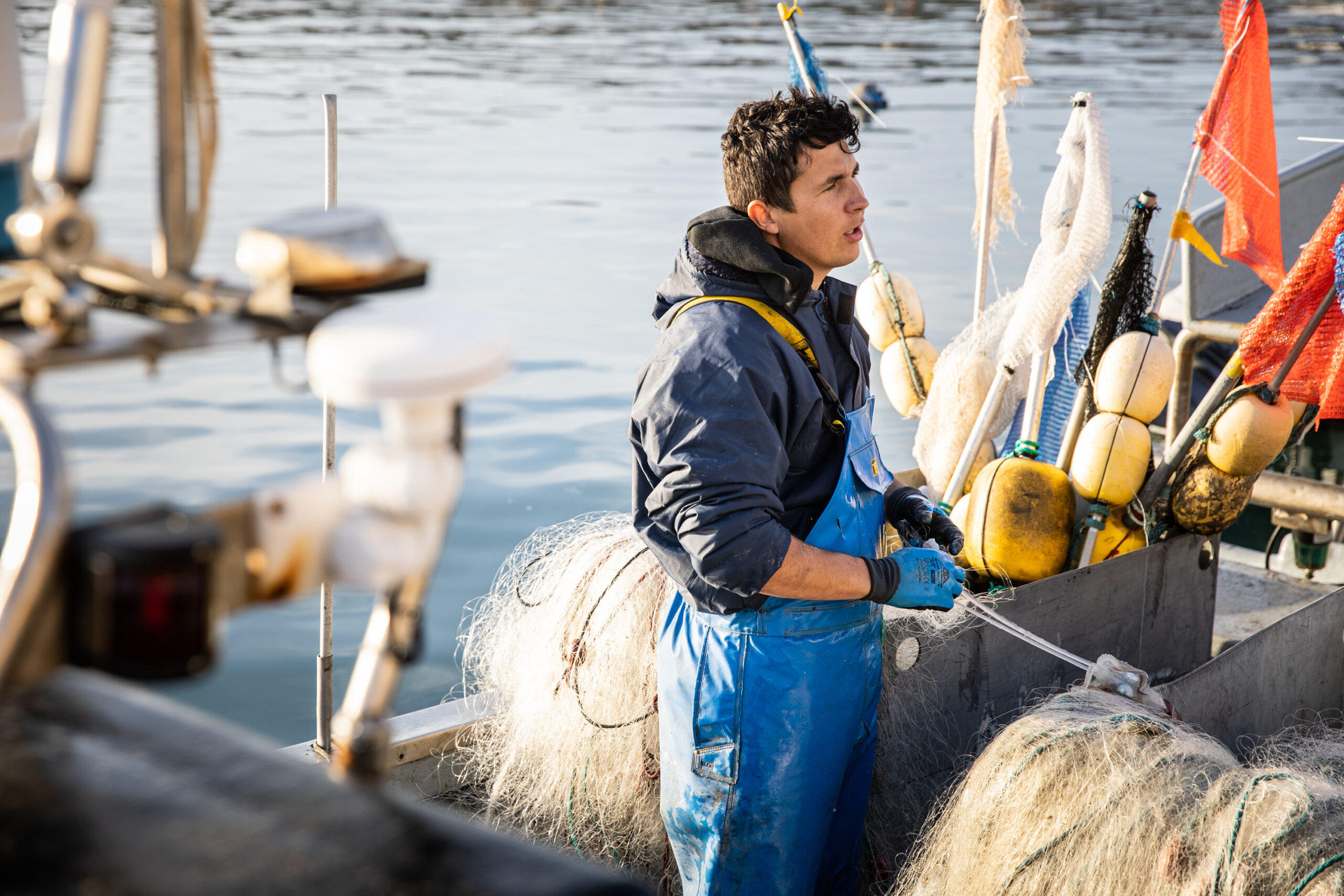

DonatorProgram EU Horizon
Ukupno Proračun: 4,545,488.63€
Doprinos do ŽIVOTA: 19.375€
Geografski opsegEuropa
Vremenska Crta: 2024-2025
PartneriTransMarTech, EUTECH, CLS, North.io, WWF EPO, WWF ANP, WWF MMI, WWF ADRIA, OURZ, SCIAENA i član LIFE-a IIMRO
„Projekt Fish X ispituje potencijal i praktičnost prikupljanja upotrebljivih podataka za malo ribarstvo u nizu studija slučaja diljem Europe. Korištenje obalnog VMS-a i namjenske podatkovne platforme omogućit će ribarima prikupljanje informacija o svojim aktivnostima i osigurati da ih ne istisnu aktivnosti plavog gospodarstva poput postrojenja za obnovljive izvore energije na moru ili oznaka zaštite okoliša poput zaštićenih morskih područja.“
Seamus Bonner, tajnik, Organizacija proizvođača morskih resursa Irskih otoka, Irska
Prošli projekti
Upravitelji Balearskog mora
Projekt Upravitelji mora, uz podršku Zaklade Marilles, usmjeren je na podršku maloj ribarskoj floti na Balearskim otocima u Španjolskoj. Tijekom 3 godine strategije su uključivale poboljšanje upravljanja ribljim zalihama, usvajanje ribolovne opreme s malim utjecajem na okoliš, razvoj programa zajedničkog upravljanja i poticanje povećane potražnje za lokalnim održivim proizvodima kroz inovativne inicijative za certificiranje i označavanje.
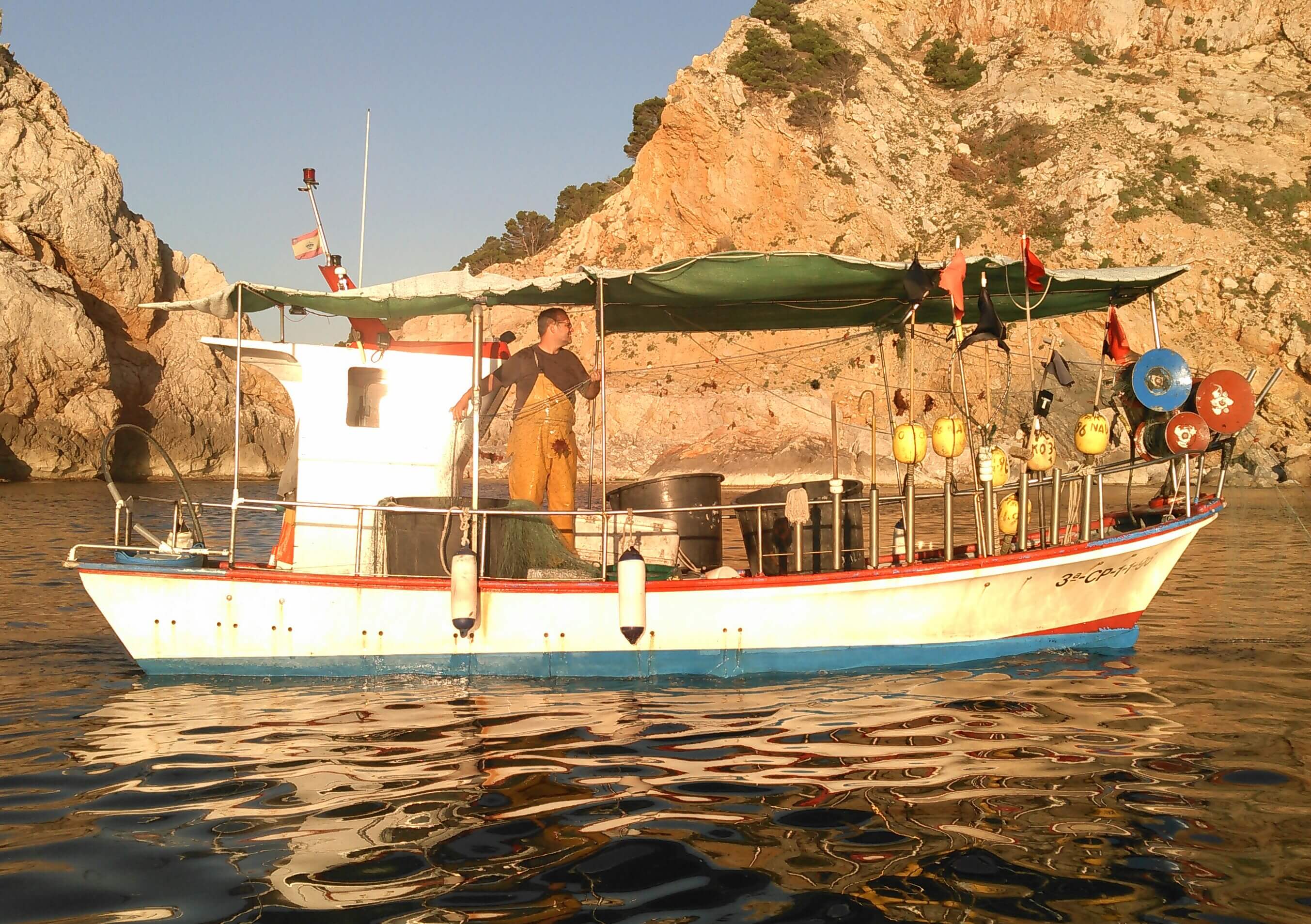
Rezultati i rezultati projekta:
– Osnivanje formalnih odbora za zajedničko upravljanje na otocima Pitiusas (Ibiza i Formentera, Španjolska)
– Napredak u razvoju plana zajedničkog upravljanja ribarstvom u Serra de Tramuntani na Mallorci i u potencijalnom programu zajedničkog upravljanja za jastoge na Balearskim otocima
– Podrška u razvoju FLAG-a na Mallorci
– Izvješće o tradicionalnom ekološkom znanju ribara na otocima Pitiusas i Menorci
– Socioekonomsko izvješće na SSF-u na otocima Pitiuses
– Studija slučaja o marketinškom programu u okviru kojeg se prodaju lokalni ulovi na Ibizi, pod nazivom Peix Nostrum. Jačanje ovog programa izravnog marketinga i razvoj Foodnetted zajednice prakse na otoku.
– Izvješće o pitanju generacijske obnove na Balearskim otocima.
DonatorZaklada Marilles
Proračun: 150.000€
Geografski opsegBalearski otoci, Španjolska
Vremenska Crta: 2020. – 2023.
PartneriŽIVOT
Više informacija: https://marilles.org/en/project/pesca-profesional
„Obrtni obalni ribolov pruža pravu priliku novim generacijama muškaraca i žena. Iako igra skromnu ulogu u gospodarskom rastu, ima ogroman utjecaj na sociokulturne i okolišne čimbenike koji su nužni za održivi razvoj sredozemne obale, temeljen na zelenom i plavom gospodarstvu. Ribari jesu i bit će čuvari Balearskog mora.“
Anna Masdeu, koordinatorica projekta za LIFE
Projekt zajednički upravljanih zaštićenih područja / zona zabrane odvoza: proširenje zajednički upravljanih i financijski održivih nezavičajnih zaštićenih područja i zaštićenih područja
Cilj projekta bio je razviti zajednički upravljana i financijski održiva zaštićena morska područja (MPA) i zone zabrane ulova diljem Sredozemnog mora. Ciljevi su uključivali obnovu biomase sredozemnih riba i zaštitu ključnih staništa putem zajednički upravljanih zona zabrane ulova i učinkovitih zaštićenih morskih područja, replikaciju i povećanje opsega, financijsku održivost i odgovarajuće regulatorne okvire. Projekt je također nastojao napraviti razliku na terenu stvaranjem novih zona zabrane ulova i poboljšanjem upravljanja zaštićenim morskim područjima, izgraditi naslijeđe i povećati opseg povećanjem kapaciteta, razmjenom naučenih lekcija i promicanjem umrežavanja među drugim upraviteljima zaštićenih morskih područja i ribarima diljem Sredozemlja. Osim toga, projekt je imao za cilj povećati financijsku održivost lokalnih inicijativa za očuvanje i osnažiti budućnost suradnjom s donositeljima odluka na replikaciji i održavanju lokalnih rješenja, razvijajući ambiciozan i učinkovit plan politike za zaštitu sredozemne morske bioraznolikosti u okviru Barcelonske konvencije.
LIFE-ov rad bio je razviti zajednički upravljana zaštićena morska područja (MPA) na 5 pilotnih lokacija u Mediteranu i osigurati potrebno zagovaranje na nacionalnoj, regionalnoj i europskoj razini za njihovo odobrenje.

Ključni rezultati postignuti radom LIFE-a:
– Osnivanje 3 formalna odbora za zajedničko upravljanje u Cap de Creusu (Katalonija, Španjolska), otocima Pitiusasu (Balearski otoci, Španjolska) i u zaštićenom morskom području sjeveroistoka Malte. Malteška vlada shvatila je slučaj zaštićenog morskog područja sjeveroistoka kao uspješan pilot-projekt i očekuje da će ga u sljedećih nekoliko godina proširiti na nacionalnu razinu.
– Na Cipru postoji sporazum sa svim relevantnim dionicima o osnivanju neformalnog odbora za zajedničko upravljanje, za koji očekujemo da će uskoro ugledati svjetlo dana.
– U Cabo de Gati (Španjolska) jedna neformalna radna skupina više dionika raspravljala je i složila se s prijedlogom plana upravljanja kojim bi se povećala učinkovitost morskog rezervata Cabo de Gata te je u pregovorima s nacionalnim nadležnim tijelima o njegovom odobrenju.
– Pravna objava dvaju planova upravljanja za maloljetničko zemljište na otocima Pitiusas i jednog u Prirodnom parku Cap de Creus (Španjolska)
– Stvaranje 1 zone zabrane uzimanja na Cipru (potvrđeno zakonom)
– Objavljivanje i podnošenje relevantnim tijelima dvaju znanstvenih izvješća kojima se preporučuje proglašenje NTZ/MPA u budućnosti na Cipru i u Italiji
– Karta i naučene lekcije iz shema zajedničkog upravljanja u Sredozemnom moru prikupljene su u posebnom izvješću i objavljene (izvješće pogledajte ovdje), čime su dostupne ključnim dionicima koji žele saznati više o toj temi. Izvješće je naglasilo potrebu za povećanjem zajedničkog upravljanja, dok bi osnivanje fokusne skupine koja okuplja različite dionike i praktičare iz zaštićenih morskih područja (MPA) i svijeta ribarstva moglo promijeniti pravila igre.
– LIFE se uključio u samoinicijativno izvješće zastupnice u Europskom parlamentu Clare Aguilere o zajedničkom upravljanju, koje bi trebalo biti usvojeno kao rezolucija na plenarnoj sjednici Europskog parlamenta kasnije 2023.
– LIFE surađuje s FAO-om u okviru objavljivanja „FAO vodiča za procjenu učinkovitosti zajedničkog upravljanja ribarstvom“ na globalnoj razini.
DonatorZaklada Mava
Ukupni proračun: 6,272,231€
Doprinos programu LIFE: 274.622 €
Geografski opseg26 lokacija u Sredozemlju, od kojih je LIFE radio na 5 od njih (zaštićeno morsko područje Cabo de Gata i otoci Pitiusas u Španjolskoj, otok Pantelleria u Italiji, zaštićeno područje I Bahar tal Grigal na Malti, zaštićeno područje Chrysohou Bay-Kakoskali na Cipru)
Vremenska Crta: 2020. – 2022.
PartneriWWF, AGIR, PLAVI SJEMENCI, HCMR, MedPAN, SPA/RAC Više informacija o web stranica Zajedno za medicinu.
Pročitajte više o priče o uspjehu projekata, kao što je u zaštićenom morskom području Gyaros u Grčkoj.
Ovaj projekt je proveden u okviru krovnog projekta „Zajedno za Mediteran„Na putu prema participativnom upravljanju morskim resursima. Profil malog ribarstva Cipra, s fokusom na zaljev Chrisohou.“
Projekt Foodnected: prema održivom i pravednom prehrambenom sustavu u Mediteranu
Foodnected je vođen vizijom okupljanja proizvođača i potrošača kroz Zajednicu prakse utemeljenu na zajedničkim vrijednostima. Skraćivanjem udaljenosti između potrošača i proizvođača te razvojem etičkog kodeksa ekoloških i društvenih vrijednosti za način proizvodnje i konzumiranja hrane, projekt Foodnected ima za cilj riješiti nedostatke u prevladavajućem prehrambenom sustavu i pokušaj je preokretanja nepravedne situacije s kojom se suočavaju mali proizvođači hrane. Foodnected je imao za cilj olakšati nastanak kratkolančanih prehrambenih sustava koji rade za prirodu i ljude - i potrošače i male proizvođače koji ovise o njima za svoju egzistenciju. Iako se projekt odvijao na mnoštvu lokacija u Sredozemlju, LIFE-ov rad na projektu bio je usredotočen na Ibizu na Balearskim otocima, Costa Bravu u Španjolskoj i Catanijski zaljev u Italiji.
Ovaj projekt je proveden u okviru krovnog projekta „Zajedno za Mediteran"Pročitajte Zajedno za izvješće o utjecaju na medicinsku situaciju.

Ključni rezultati za LIFE-ov dio projekta uključivali su:
– Dogovorena je zajednička vizija održivih i pravednih prehrambenih sustava s 10 temeljnih vrijednosti kao glavnim pokretačima te vizije. – Pokrenute su 2 sheme izravnog marketinga za male ribare (Empesca't) ili ojačano (Peix Nostrum) – Razvijene su 3 lokalne zajednice prakse (po jedna na svakoj lokaciji) kako bi se podržala transformacija prehrambenih sustava na lokalnoj razini na 3 lokacije. Akteri 3 zajednice prakse angažirali su se na razvoju plana za održive i pravedne prehrambene sustave. – U Katanijskom zaljevu osnovana je 1 nova organizacija malih ribara – 1 obuka o „ikejimeu“ održana je za ribare iz malog ribarskog sektora u l'Estartitu, a ribari su sada u procesu certificiranja za ovu tehniku koja donosi poboljšanu dobrobit životinja i kvalitetnije proizvode. Upitnik za praćenje za proizvođače ribe razvijen je i testiran na sve tri lokacije. Ovaj alat poslužit će kao samoevaluacija i osnovna informacija za male ribare u postizanju 10 temeljnih vrijednosti Foodnecteda, potaknuti međusobno ocjenjivanje i najbolje sustavnije komunicirati njihov doprinos tim vrijednostima. – Ekološki otisak ribljih proizvoda iz malog ribolova procijenjen je na tri lokacije, čime je izgrađena osnova za buduća poboljšanja.
Donator: Zaklada Mava
Proračun: 517.412€
Doprinos programu LIFE: 169.544 €
Geografski opsegSredozemno more s mnoštvom pilotnih lokacija u Španjolskoj, Italiji, Crnoj Gori i Turskoj
Vremenska Crta: 2021. – 2022.
PartneriSlowfood, Globalna mreža ekološkog otiska, GOB Menorca, Savez za mediteransku prirodu i kulturu, Yolda, MSJA i ICS-ZIP
Više informacija: https://foodnected.org/
Ostale poveznice:
Foodnected animacija
Brošura
Web stranica Foodnected-a
More promjena video
„Nakon što smo se godinama trudili naglasiti važnost obrazovanja i podići svijest potrošača o vrijednosti njihove hrane i njihovoj povezanosti s ljudima koji je proizvode, uzbuđeni smo što surađujemo s organizacijama za održivi ribolov i poljoprivredu kako bismo napredovali prema svijetu u kojem se svi akteri mogu udružiti kroz zajedničke inicijative kako bi poboljšali međusobne živote kroz bitan aspekt onoga što znači biti čovjek: hranu koju odabiremo konzumirati ne samo da bismo nahranili svoja tijela, već i njegovali svoj duh i zajednice“, rekli su.
Paula Barbeito, koordinatorica Foodnecteda u Slow Foodu.
Ublažavanje pljačkanja dupina
Projekt ublažavanja predatora dupina imao je za cilj ojačati očuvanje kitova i održivo ribarstvo smanjenjem predatora i širenjem regionalne mreže stručnosti na tu temu. LIFE je bio partner inicijative, koja se nadovezala na LIFE-ov prethodne procjene i rad u prošlosti na toj temi te je ovaj put testirao različite potencijalne tehničke mjere ublažavanja. Ciljevi projekta uključivali su procjenu predatorstva uzrokovanog kitovima u ribolovu plivaricom u Maroku i Tunisu, kao i u malom ribolovu u Andaluziji (Španjolska), Siciliji (Italija) i Malti. Cilj projekta bio je pružiti pouzdane podatke o predatorstvu putem promatranja na brodu, pokazati održivost tehničkih mjera ublažavanja koje mogu smanjiti utjecaj predatorstva na kitove te angažirati zemlje sudionice u usvajanju dobrih praksi za učinkovito rješavanje problema predatorstva.
Ovaj projekt je proveden u okviru krovnog projekta „Zajedno za Mediteran"Pročitajte Zajedno za izvješće o utjecaju na medicinsku situaciju.

Ključni rezultati za LIFE-ov dio projekta uključivali su: – Dogovorena je zajednička vizija održivih i pravednih prehrambenih sustava s 10 temeljnih vrijednosti kao glavnim pokretačima te vizije. – Pokrenute su 2 sheme izravnog marketinga za male ribare (Empesca't) ili ojačano (Peix Nostrum) – Razvijene su 3 lokalne zajednice prakse (po jedna na svakoj lokaciji) kako bi se podržala transformacija prehrambenih sustava na lokalnoj razini na 3 lokacije. Akteri – 3 zajednice prakse angažirali su se na razvoju plana za održive i pravedne prehrambene sustave. – U Katanijskom zaljevu osnovana je 1 nova organizacija malih ribara – 1 obuka o „ikejimeu“ održana je za ribare iz malog ribarskog sektora u l'Estartitu, a ribari su sada u procesu certificiranja za ovu tehniku koja donosi poboljšanu dobrobit životinja i kvalitetnije proizvode. Upitnik za praćenje za proizvođače ribe razvijen je i testiran na sve tri lokacije. Ovaj alat poslužit će kao samoevaluacija i osnovna informacija za male ribare u postizanju 10 temeljnih vrijednosti Foodnecteda, potaknuti međusobno ocjenjivanje i najbolje sustavnije komunicirati njihov doprinos tim vrijednostima.
– Ekološki otisak ribljih proizvoda iz malog ribolova procijenjen je na tri lokacije, čime je izgrađena osnova za buduća poboljšanja.
DonatorZaklada Mava
Proračun: 318.186 € bez izravnog financiranja za LIFE
Geografski opsegSredozemno more (Španjolska, Malta, Sicilija, Maroko i Tunis)
Vremenska Crta: 2020. – 2022.
Partneri: Accobams, INAT, INRH, INSTM, MARE CAMP, MCAST, AHE, SPA/RAC
Više informacija o Web stranica Zajedno za Med.
Uključivanje malog ribarstva s niskim utjecajem na Sredozemlje: davanje glasa sektoru malog ribarstva.
U LIFE-u vjerujemo da bi održivi ribolov trebao biti stavljen na vrh institucionalnog dnevnog reda jer će svi napori za zaštitu Sredozemnog mora biti uzaludni bez aktivnog sudjelovanja malog ribarstva, pravih čuvara mora. Imajući taj cilj na umu, projekt „Uključivanje malog ribarstva s niskim utjecajem na Sredozemno more“ (2018.-2021.), koji je podržala Zaklada MAVA, osnažio je ribare i dao im predan glas, s naglaskom na Alboransko more i Sicilski tjesnac. Projekt je uključivao niz aktivnosti kao što su poboljšanje razumijevanja sektora malog ribarstva, prepoznavanje i korištenje znanja lokalnih ribara o vrstama, staništima i klimatskim promjenama. Zagovaranje zajedničkog upravljanja koje obuhvaća zaštićena morska područja i zone određene za mali ribolov. Jačanje ribara i njihovih organizacija za sudjelovanje u platformama za donošenje politika i odluka poput Mediteranskog savjetodavnog vijeća (MedAC), projekta MedFish4Ever i Opće komisije za ribarstvo Sredozemlja (GFCM). Identificiranje i podržavanje najboljih praksi putem inicijativa za podizanje svijesti poput razmjena, radionica, usmjerenih diskusijskih grupa i komunikacije. Jačanje uloge LIFE-a kao vjerodostojnog predstavnika interesa malih ribara proširivanjem članstva i jačanjem mreže AKTEA, koja je usmjerena na žene u ribarstvu, kroz ciljane akcije i aktivnosti.
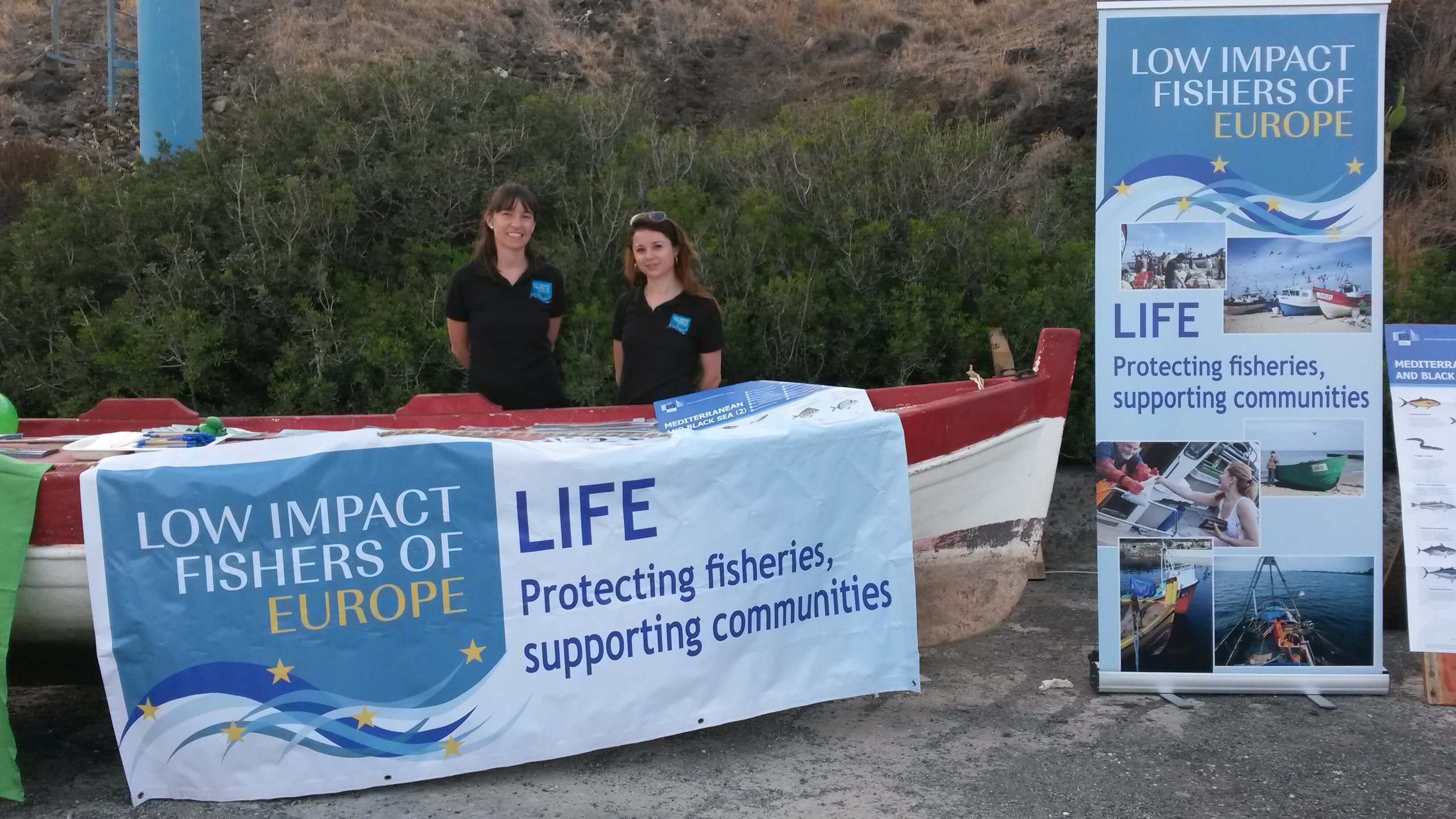
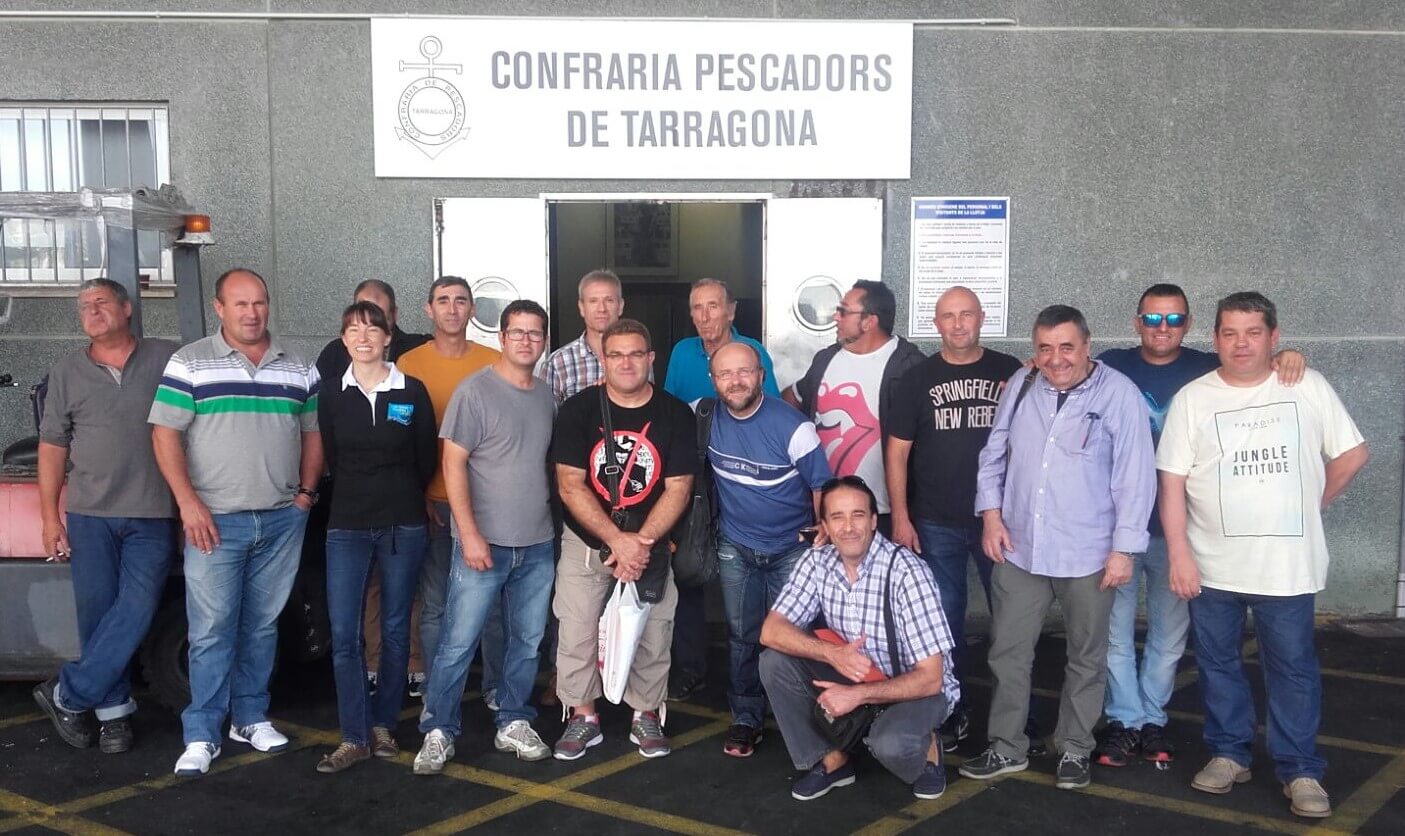
Rezultirajući dokumenti:
– Suupravljanje za SSF: Principi, prakse i izazovi.
– Interakcije između kitova i morskih životinja u Sredozemnom moru: Zaključno izvješće
–MEDTEK: Mediteransko ekološko znanje o malom ribolovu: preliminarni nalazi na lokacijama Cabo de Gata (Španjolska), Malta i otok Pantelleria (Italija).
– Društveni i ekonomski aspekti sredozemnog malog ribarskog sektora: pregled triju ribarskih zajednica
– Prednosti i nedostaci stvaranja organizacija proizvođača za male ribare u Sredozemlju
DonatorZaklada Mava
Proračun: 650.000 €
Geografski opsegSredozemno more (s Alboranskim morem i Sicilskim tjesnacem kao prioritetnim područjima)
Vremenska Crta: 2018. – 2021.
PartneriŽIVOT
„S platformom LIFE upoznali smo se 2016. godine i cijenili smo kako je naše partnerstvo započelo. Dolazimo iz sektora zaštite prirode, a LIFE iz sektora ribarstva. Brzo smo predvidjeli da će suradnja između naših dviju organizacija pokrenuti novi smjer za očuvanje morskog života. Sa svojim članstvom i znanjem o sektoru malog ribarstva, platforma LIFE sada igra značajnu ulogu u skupini nevladinih organizacija za očuvanje koje podržavamo, jer organizacija osigurava da projekti zaštite mora također rješavaju izazove s kojima se suočavaju ribari.“"
Julien Semelin
Voditelj, Program za mediteranski bazen
Zaklada MAVA
Mjere potpore malom ribolovu u Baltičkom i Sjevernom moru
Projekt „Mjere potpore malom ribolovu u Baltičkom i Sjevernom moru“‘'‘ podržane mreže malih ribara u zemljama poput Poljske, Njemačke, Danske, Finske, Švedske i Estonije. Osnaživanje organizacija malih ribara potaknuto je i osigurano fokusiranjem na nekoliko prioriteta. Izgradnja kapaciteta malih ribara u regiji za učinkovito predstavljanje u regionalnim forumima, posebno u savjetodavnim vijećima. Poticanje redovite suradnje s lokalnim ribarima kako bi se razumjela njihova situacija, pomoglo u identificiranju potreba i uspostavili zajednički programi i poruke. Olakšavanje stvaranja zajedničkih stavova i koordinacije kolektivnih djelovanja. Poticanje suradnje među malim ribarima radi razmjene znanja i najboljih praksi. Osiguravanje da su lokalni ribari dobro informirani o razvoju politika na svim relevantnim razinama. Pružanje savjeta za rješavanje operativnih izazova s kojima se mali ribari suočavaju u svojim svakodnevnim aktivnostima.
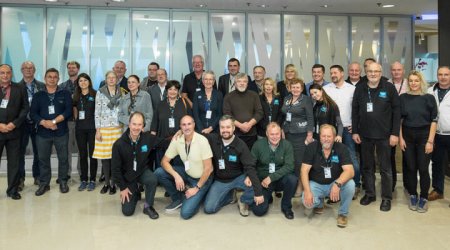
Ključna postignuća i rezultati mogu se pronaći u: LIFE_BANS_Završno_tehničko_izvješće
Fotogalerija (Radionica) Fotogalerija (Završni događaj) Video završnog događaja Završna radionica
DonatorEuropska komisija
Proračun: 268.695,90 €
Geografski opsegBaltičko i Sjeverno more
Vremenska Crta: 2016. – 2018.
PartneriŽIVOT
Pokretanje platforme Ribara Europe s malim utjecajem na okoliš
LIFE je primio početnu potporu za formalnu registraciju i pokretanje inicijative, s glavnim fokusom na razvoj snažnijeg glasa malih ribara diljem Europe, zastupanje malih ribara s niskim utjecajem na okoliš pred europskim institucijama u Bruxellesu i podršku nacionalnim organizacijama koje predstavljaju male ribare.
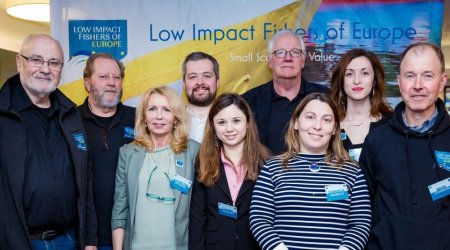
DonatorZaklada Underwood Trust
Proračun: 1.400.000 €
Geografski opseg: Europski
Vremenska Crta: 2015. – 2018.
PartneriŽIVOT
Više informacija: LIFEova animacija

